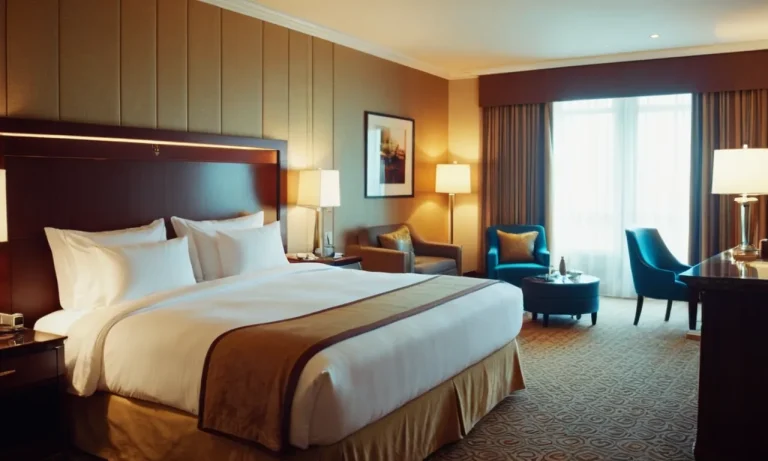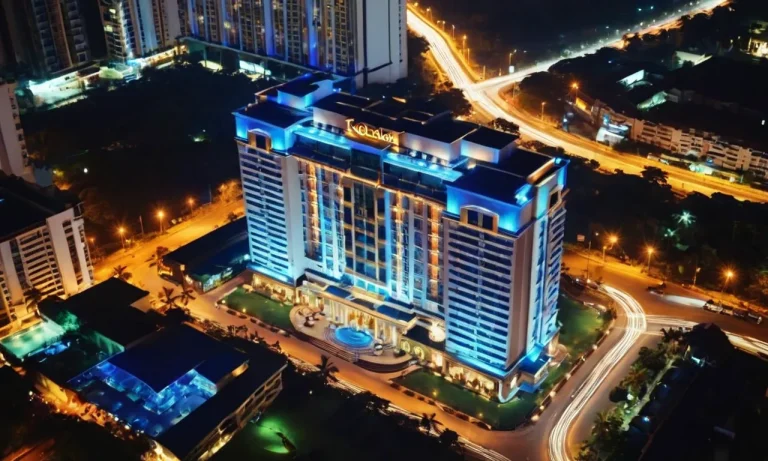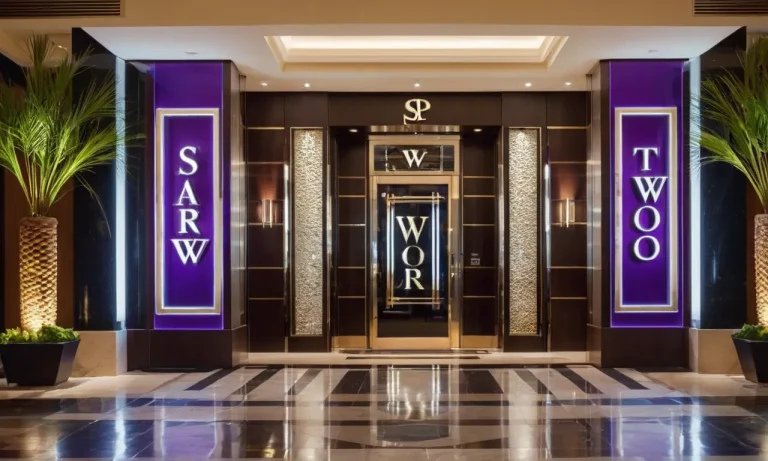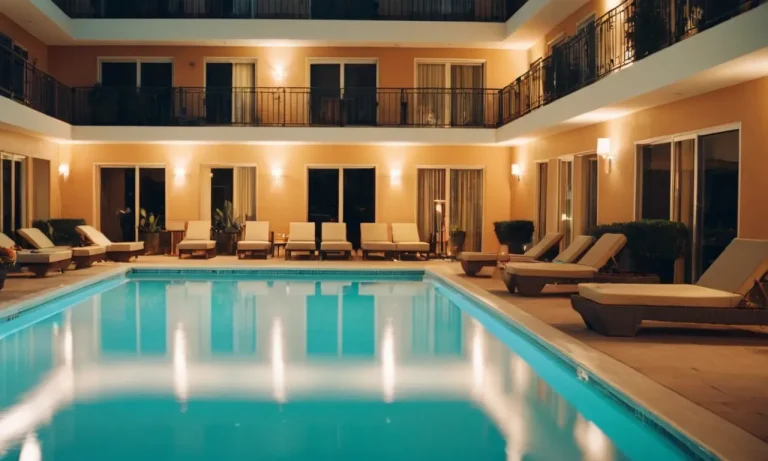Difference Between A Hotel And An Apartment: A Comprehensive Guide
When it comes to accommodations, the choice between a hotel and an apartment can be a tough one. Both offer unique advantages and cater to different needs, making it essential to understand the distinctions before making a decision.
If you’re short on time, here’s a quick answer to your question: A hotel is a temporary lodging establishment that provides guests with furnished rooms, amenities, and services, while an apartment is a self-contained residential unit designed for long-term living, offering more space, privacy, and independence.
In this comprehensive guide, we’ll delve into the key differences between hotels and apartments, exploring factors such as cost, amenities, privacy, and flexibility. Whether you’re a frequent traveler, a digital nomad, or simply seeking a change of scenery, this article will equip you with the knowledge to make an informed decision that aligns with your needs and preferences.
Purpose and Duration of Stay
One of the key distinctions between hotels and apartments lies in their intended purpose and the typical duration of stay. While hotels are primarily designed to accommodate travelers for short-term stays, apartments cater to those seeking more extended or long-term accommodations.
Hotels: Designed for Short-Term Stays
Hotels are primarily geared towards travelers who are on the move, whether for business, leisure, or a combination of both. They offer a convenient and temporary place to rest, with a range of amenities tailored to meet the needs of transient guests.
According to Statista, the average length of stay in hotels worldwide is around 2-3 nights, reflecting the short-term nature of hotel stays.
- Ideal for vacations, business trips, and weekend getaways
- Offer a range of services, such as daily housekeeping, on-site restaurants, and concierge services
- Provide a hassle-free experience for guests who don’t want to worry about household chores or maintenance
Apartments: Ideal for Extended Stays
In contrast, apartments are designed with longer-term living in mind. They cater to individuals or families who require a more home-like environment for an extended period, whether for work assignments, temporary relocation, or simply a desire for a more spacious and self-contained living arrangement.
According to a report by ApartmentGuide, the average length of stay in an apartment is around 2.7 years, highlighting the suitability of apartments for longer durations.
- Offer more space, privacy, and amenities like a fully-equipped kitchen and laundry facilities
- Ideal for those seeking a more permanent or semi-permanent living situation
- Provide a sense of community and a home-away-from-home experience
While hotels excel at providing a comfortable and convenient stay for shorter periods, apartments shine when it comes to offering a more independent and home-like living experience for extended durations.
Whether you’re seeking a cozy retreat for a weekend getaway or a temporary home base for a longer stint, understanding the purpose and duration of stay can help you make an informed decision between a hotel and an apartment that best suits your needs.
The choice ultimately depends on your travel requirements, budget, and desired level of comfort and convenience.
Amenities and Services
Hotels: Comprehensive Amenities and Services
Hotels are renowned for their extensive range of amenities and services, designed to cater to the needs and desires of their guests. From luxurious spas and state-of-the-art fitness centers to gourmet restaurants and concierge services, hotels strive to provide a truly indulgent experience.
Imagine waking up to a delectable breakfast buffet, followed by a rejuvenating massage at the on-site spa, and then enjoying a sumptuous dinner prepared by world-class chefs – all without ever leaving the premises. 😍
According to a recent survey by Statista, 82% of travelers consider amenities such as pools, fitness centers, and spas as important factors when choosing a hotel. Additionally, 24-hour room service, laundry facilities, and business centers are among the most sought-after amenities, catering to both leisure and business travelers alike.
Furthermore, hotels often boast exceptional customer service, with staff members trained to anticipate and fulfill every need. From arranging local tours and transportation to handling special requests, the hotel staff goes above and beyond to ensure a seamless and memorable stay.
This level of personalized service is a hallmark of the hotel experience, setting it apart from other accommodation options.
Apartments: Self-Sufficient Living
In contrast to hotels, apartments offer a more independent and self-sufficient living experience. While amenities may vary depending on the property, apartments typically provide basic necessities such as a fully equipped kitchen, living area, and private bedrooms.
This setup allows for greater flexibility and privacy, making it an ideal choice for those seeking a more home-like environment, especially for extended stays or long-term living.
However, don’t be fooled – many modern apartment complexes have upped their game, offering a range of amenities to cater to their residents’ needs. From on-site fitness centers and swimming pools to communal lounges and outdoor grilling areas, these amenities foster a sense of community while still maintaining a level of independence.
According to a report by the National Multifamily Housing Council, 92% of apartment communities now offer fitness centers, and 89% have swimming pools – a testament to the growing demand for amenities in apartment living.
While apartments may not offer the same level of personalized service as hotels, they provide a sense of freedom and flexibility that many find appealing. The ability to cook your own meals, maintain your own schedule, and enjoy a more private living space are all advantages that make apartments a popular choice for those seeking a more independent lifestyle.
Cost and Value Considerations
Hotels: Varying Rates Based on Location and Amenities
When it comes to hotels, the cost can vary significantly depending on several factors. Location plays a crucial role, with hotels in prime areas or major cities typically charging higher rates. For instance, a hotel in the heart of New York City or Paris will likely be more expensive than one in a suburban area.
Additionally, the amenities and services offered by a hotel can greatly impact its pricing. Luxury hotels with upscale amenities like spas, fine dining restaurants, and state-of-the-art fitness centers often command higher rates than budget or mid-range hotels.
According to a survey by Statista, the average daily rate for luxury hotels in the United States was around $320 in 2022, while budget hotels averaged around $90 per night.
However, hotels can offer great value for shorter stays or special occasions. Many hotels provide packages that include amenities like complimentary breakfast, Wi-Fi, and parking, which can make the overall cost more reasonable.
Additionally, hotels often offer discounts or promotional rates during off-peak seasons or for extended stays, making them a more affordable option for certain travelers. Don’t forget to check hotel booking websites like Expedia or Booking.com for the best deals and discounts! 😉
Apartments: Potentially More Cost-Effective for Long-Term Stays
On the other hand, apartments can be a more cost-effective option, especially for longer stays or for those seeking a more homely environment. While the upfront cost of renting an apartment may seem higher than a hotel room, the overall expenses can be lower when factoring in the ability to cook meals, do laundry, and enjoy more living space.
According to a report by ApartmentGuide, the average monthly rent for a one-bedroom apartment in the United States was around $1,700 in 2022. However, this cost can vary greatly depending on the city and neighborhood.
One of the key advantages of apartments is the potential for cost savings over an extended period. With access to a kitchen, you can prepare meals at home, which can be significantly cheaper than dining out for every meal.
Additionally, many apartments come with in-unit laundry facilities, eliminating the need for costly laundry services. Utilities like electricity, water, and internet are often included in the rent, adding to the overall value.
Furthermore, apartments typically offer more living space than a standard hotel room, providing a sense of home and comfort, especially for families or those seeking a more relaxed environment.
| Accommodation Type | Average Cost (US) | Advantages |
|---|---|---|
| Luxury Hotel | $320/night | Prime locations, upscale amenities, services |
| Budget Hotel | $90/night | Affordable rates, basic amenities |
| 1-Bedroom Apartment | $1,700/month | Cost-effective for long stays, more living space |
Ultimately, the choice between a hotel and an apartment comes down to your travel needs, budget, and personal preferences. For shorter stays or special occasions, hotels can offer convenience and a range of amenities, while apartments may be the more practical and cost-effective option for extended stays or those seeking a more homely environment.
Whichever you choose, make sure to do your research and compare prices to find the best value for your money! 👍
Privacy and Independence
Hotels: Shared Spaces and Limited Privacy
When you stay in a hotel, you’re essentially sharing a space with numerous other guests. While hotels offer private rooms, the common areas like lobbies, hallways, and elevators are shared by everyone. This can sometimes lead to a lack of privacy and a sense of being in a crowded environment.
According to a survey by TripAdvisor, nearly 30% of hotel guests cited noise from other guests as a significant issue during their stay.
Additionally, hotels often have strict check-in and check-out times, as well as housekeeping schedules that can limit your independence and flexibility. You may have to plan your activities around these schedules, which can be inconvenient, especially if you’re on a tight schedule or prefer to keep your own routine.
Don’t forget the awkward moments when you have to put up the “Do Not Disturb” sign to avoid any unwanted interruptions! 😳
Apartments: Enhanced Privacy and Independence
On the other hand, staying in an apartment offers a heightened level of privacy and independence. With your own private space, you can enjoy complete seclusion without worrying about noisy neighbors or shared common areas.
According to a study by ApartmentGuide, over 70% of apartment residents cited privacy as one of the top reasons for choosing an apartment over a hotel.
Moreover, apartments provide you with the freedom to come and go as you please, without adhering to strict check-in or check-out times. You can maintain your own schedule and routine, which can be especially beneficial for those who value their independence.
Plus, you won’t have to worry about housekeeping knocking on your door at inconvenient times – you’re in charge of your own space! 🙌
Here’s a quick comparison table to highlight the differences in privacy and independence between hotels and apartments:
| Aspect | Hotel | Apartment |
|---|---|---|
| Privacy | Shared common areas, potential noise from other guests | Private and secluded space |
| Independence | Strict check-in/check-out times, housekeeping schedules | Freedom to come and go, maintain your own routine |
So, if you’re someone who values their privacy and independence, an apartment might be the way to go. But if you prefer the convenience and amenities of a hotel, that could be a better choice for you. It all comes down to your personal preferences and travel needs!
Conclusion
The choice between a hotel and an apartment ultimately depends on your specific needs, preferences, and travel goals. Hotels offer convenience, amenities, and services tailored for short-term stays, while apartments provide a more independent and cost-effective option for extended stays or long-term living.
Whether you’re seeking the luxury and pampering of a hotel or the privacy and flexibility of an apartment, understanding the key differences will help you make an informed decision that aligns with your lifestyle and budget.
Embrace the adventure of exploring new accommodations and create lasting memories in the process.








